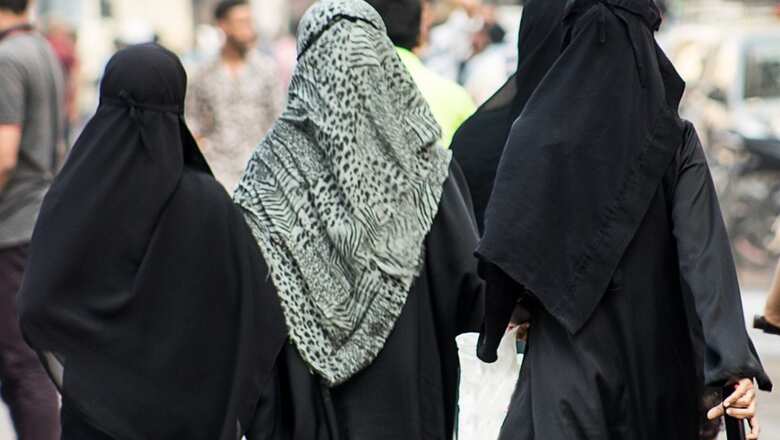
views
The Uniform Civil Code (UCC) is an embodiment of Article 44 of the Indian Constitution which seeks the implementation of a uniform set of laws, governing the personal affairs of citizens, pertaining to the institution of marriage and the ancillary rights arising out of the same such as inheritance, alimony, guardianship and adoption, amongst others with the sole object of national consolidation. This is based on the assumption that there is no intimate link between personal laws and religious affairs in a civilised society. The idea of a UCC ignited a spark in 1947 when most Indians were unaffected by the secular civil and criminal laws which were implemented by the British since it struck the very essence of the orthodoxy that all of our religious communities possessed.
While the UCC was proposed in the Constituent Assembly to reform the orthodoxy of India’s religious communities in a bid to protect the rights of the citizens, especially women who were largely affected by our country’s personal laws, all of which were regressive to an extent, the partition had invoked a fear within the Muslim community that they would be imposed upon by the Hindu majority. The Minorities Sub-Committee sought for the UCC to be amended such that its implementation would be voluntary. However, this was very beautifully countered by Dr BR Ambedkar, KM Munshi and Sir Alladi who highlighted the reforms in Muslim personal laws in countries such as Egypt and Turkey which led to the aforementioned amendment being rejected.
As far as Muslim countries are concerned, polygamy is totally prohibited in Tunisia and Turkey. However, even in the case of countries such as Indonesia, Syria, Iraq, Somalia, Syria, Pakistan and Bangladesh, it is permissible only if it is authorised by the State or some other prescribed authority. Furthermore, Talaq-ul-Biddat has been legislatively abolished in Egypt, Jordan, Sudan and even Syria. Countries such as Pakistan and Bangladesh have a bar on extra-judicial talaq being invalid unless received assent from an Arbitration Council. All of these are Islamic Republics, so there is no question of a Hindu imposition with regard to amending their personal laws and it highlights that Islamic Personal Law is not immutable. It is pertinent to note that these changes transpired in their personal laws decades ago.
Contrary to the belief that bringing a UCC would splinter the secular fabric of the country, its very objective is to integrate the country by bringing all the communities under a common umbrella on matters which are currently governed by a diverse set of personal laws, which do not form the essence of any religion such as guardianship, alimony and maintenance, etc.
The implementation of a Uniform Civil Code in India would bring several benefits, not only for Muslims but for the country as a whole. While it is essential to acknowledge and respect the diversity of religious practices and customs, it is equally important to ensure that fundamental rights, equality, and justice are upheld for all citizens, including Muslim women. The UCC seeks to extend the notion of equality and protection of individual liberty to all the citizens, who are discriminated against and aggrieved by the various personal laws, by not only applying a uniform set of laws but also affording uniform protection and benefits through them.
Since the enactment of the Constitution, the Muslim personal laws of our country have been plagued by various patriarchal practices such as polygamy, nikah halala or not providing sufficient alimony and maintenance to wives after divorce, which has continued to emancipate women who, yet, have not fully gained independence in its truest sense. These patriarchal practices go against the very spirit and essence of the ‘fundamental right to live with dignity’ under Article 21 of the Constitution. Furthermore, Muslim Personal Law also does not allow for the legal adoption of children and it has proved to be significantly detrimental to their upbringing and their fundamental right to life and dignity. These merely highlight some of the issues that the UCC aims to tackle by providing equal protection under the law and ridding religious communities of their patriarchal practices.
The All India Muslim Personal Law Board (AIMPLB) and Asaduddin Owaisi have strongly opposed the implementation of the UCC, calling it neither necessary nor desirable, since it allegedly infringes upon their fundamental right to religion. The argument put forth by them is that Indian Muslim Law is immutable since it is directly derived from the Quran and cannot be amended. However, I strongly object to that since the Muslim Personal law in India is in fact Anglo-Muslim law. Prior to the enactment of the Shariat Act by the British, various Muslim communities such as those from UP and the Central provinces were governed by Hindu law in various aspects of personal law and in fact, the Khojas and the Cutchi Muslims who were not only followers of Hindu customs, were also one of the strongest objectors to the Shariat Act being made applicable to them.
I am of the opinion that while the right to follow one’s religion is fundamental, however, it is not an absolute right and is subject to principles such as public order and morality. A person’s religious rights cannot be subservient to the fundamental right to equality and the right to live.
The recurrent argument that the UCC is contrary to the Shariat needs to be understood in light of the fact that the UCC is a part of the Directive Principles of State Policy (DPSP) under Article 44 of the Constitution and the only way to change the Constitution is by availing the special procedure prescribed for its amendment under Article 368(2), which requires a special majority in the parliament. If the AIMPLB and the supporters of their idealogue can convince the Parliament and get the support of the special majority, only then can the idea of putting the UCC at rest be fulfilled. This cannot be done either by sheer force or by seeking support from forces outside the country which belong to pan-Islamic organisations.
I cannot think of a more appropriate quote than that of Chief Justice MC Chagla (Retd) who was not only a proud Muslim but a proud Indian. “Article 44 is a mandatory provision binding the Government, and it is incumbent upon it to give effect to this provision. The Constitution was enacted for the whole country, it is binding for the whole country, and every section and community must accept its provisions and its directives.”
Owaisi’s statements primarily pertain to preserving one’s religious identity and the same being protected under Article 29 of the Constitution, this is an argument that has been propounded since the inception of the idea of a UCC and has been reiterated multiple times by various leaders of the Muslim community. The great constitutional jurist, DD Basu, was of the opinion that the plea for a Muslim identity is merely a relic of the “Two Nation Theory” which was propounded by the political leaders from the Muslim community who sought the partition of the country on communal lines, while the nationalistic Indian leaders were always of the strong belief that there is only one nation. There should not be any fears or apprehensions of losing religious identity for Muslims when the very Constitution which sought the implementation of the UCC also guarantees them the right to maintain institutions which are of the utmost importance for their religion, language and culture through the fundamental rights that have been bestowed upon them.
In this pursuit of a progressive and harmonious society, it is crucial for all individuals, communities, and political leaders to come together and support the implementation of the Uniform Civil Code. Only through collective efforts and a shared vision can we truly uphold the principles of justice, equality, and unity that India stands for and what the makers of our Constitution had envisioned. As a Muslim woman myself, advocating for the UCC, I encourage my fellow citizens, regardless of their religious background, to embrace this transformative change.
In this backdrop, it’s heartening to know the findings of the News18 UCC survey which shows that a considerable majority of Muslim women support the introduction of common laws pertaining to marriage, divorce, adoption, and inheritance.
Let us reaffirm our commitment to a pluralistic India, where the rights and well-being of every individual are safeguarded, and where the principles of equality and justice prevail.
Zeba Zoriah writes on politics, policies, culture and women’s rights. The views expressed in this article are those of the author and do not represent the stand of this publication.















Comments
0 comment